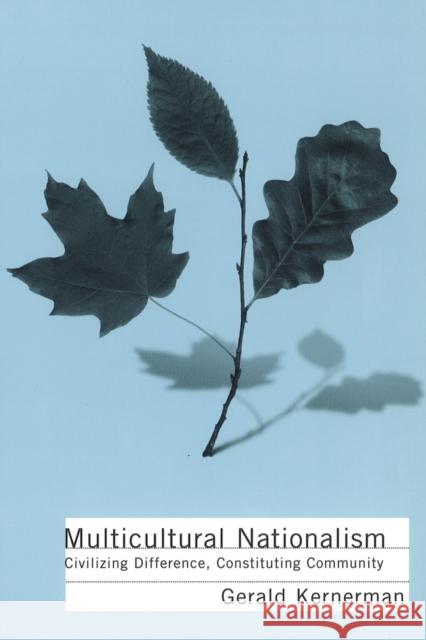Multicultural Nationalism: Civilizing Difference, Constituting Community » książka
Multicultural Nationalism: Civilizing Difference, Constituting Community
ISBN-13: 9780774810012 / Angielski / Miękka / 2006 / 146 str.
Multicultural Nationalism: Civilizing Difference, Constituting Community
ISBN-13: 9780774810012 / Angielski / Miękka / 2006 / 146 str.
(netto: 134,40 VAT: 5%)
Najniższa cena z 30 dni: 140,83
ok. 22 dni roboczych.
Darmowa dostawa!
Canadian citizenship has long been characterized in opposition to that of our southern neighbour as a ?mosaic? instead of a ?melting pot.? Acceptance of minority ethnic, racial, religious, cultural, and linguistic groups has largely been seen as key to our sense of what it means to be Canadian. Such multiplicity, however, has given rise to ongoing debates over equality, diversity, identity, and unity.This groundbreaking work interrogates and expands the accepted modes of thinking through Canadian citizenship. Drawing on feminist and postcolonial theorists, Gerald Kernerman undertakes a discourse analysis of Canadian constitutional and policy documents, public speeches, and media texts. He examines and critiques what he sees as the two major competing understandings of how Canada ought to manage its diversity, both of which seek to define an overarching notion of Canadian unity: on the one hand, the argument for differentiated citizenship, or ?difference, ? and on the other, the case for universal and undifferentiated citizenship, or ?equality.? Positing that each of these positions ends at the same impasse in its preoccupation with the challenges diversity represents for cohesion and stability, Kernerman proposes an alternative -- a post-nationalist multiculturalism that does not attempt to ask, or answer, the thorny ?unity? question.An important contribution to the critical literature on Canadian politics, citizenship, and multiculturalism, Multicultural Nationalism will appeal to political scientists and philosophers, as well as those with an interest in critical race theory, liberal multiculturalism, and law and society.











